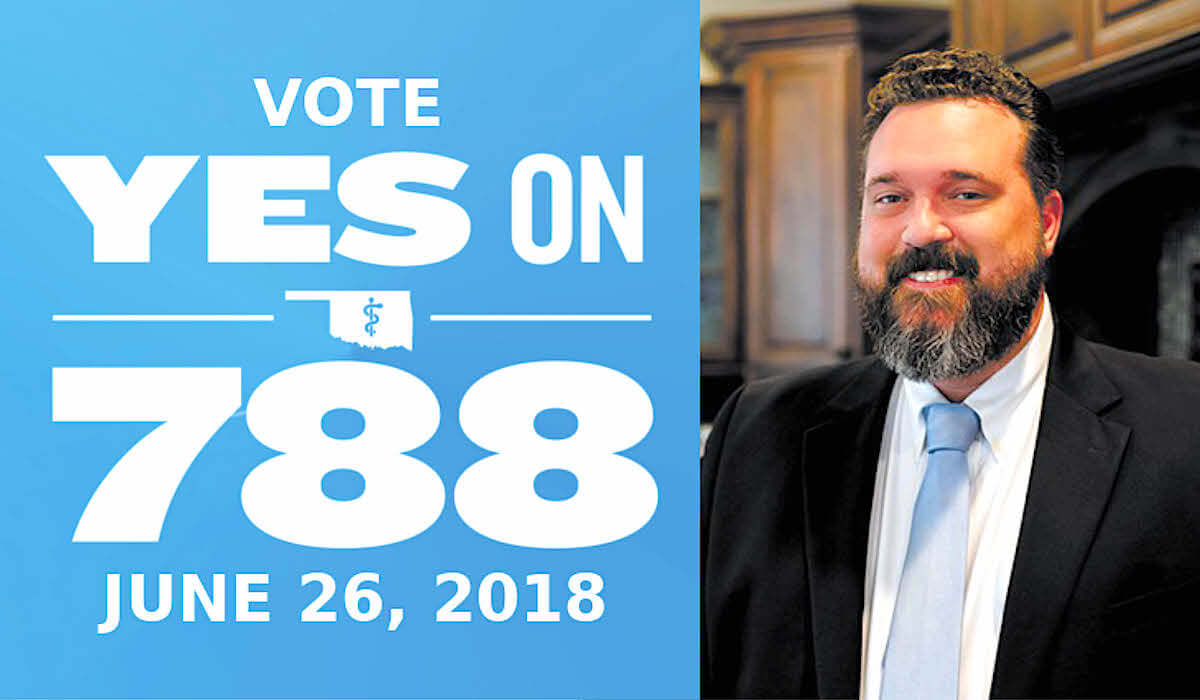As Oklahomans gear up to vote on whether to legalize medical marijuana, two studies released this year show evidence that doing so would likely reduce the prevalence of opioid prescriptions.
On June 26, voters will decide State Question 788 on the state’s primary election ballot. If SQ 788 passes, Oklahoma will join 29 other states in allowing marijuana use for medicinal purposes.
The ballot language would require the prescription of a physician, ensuring that the government will not interfere between the doctor-patient relationship.
Empirical data: Medical marijuana combats opioid abuse
As noted by U.S. Rep. Tom Cole (R-Oklahoma) in a recent commentary for the Journal Record, “according to the Centers for Disease Control and Prevention, 115 Americans die each day from an opiate overdose, which is one American every 13 minutes. CDC data shows that 40% of all drug-related mortality cases resulted from opioid abuse.”
Clearly, Oklahoma is no exception to this national tragedy, as its ranks sixth in the nation for highest opioid-prescribing rates.
Several studies have suggested that a state’s legalization of medical marijuana decreases opioid prescriptions, while other recent analyses offer more intrinsic support for these claims. A 2014 paper published in the peer-reviewed JAMA Internal Medicine journal found that states with medical marijuana laws had nearly 25 percent fewer deaths from opioid overdoses.
Similarly, JAMA Internal Medicine recently published two other studies that were chronicled in an April article from Scientific American:
Two papers published Monday in JAMA Internal Medicine analyzing more than five years of Medicare Part D and Medicaid prescription data found that after states legalized weed, the number of opioid prescriptions and the daily dose of opioids went way down.
“In this time when we are so concerned—rightly so—about opiate misuse and abuse and the mortality that’s occurring, we need to be clear-eyed and use evidence to drive our policies,” said W. David Bradford, an economist at the University of Georgia and an author of one of the studies. “If you’re interested in giving people options for pain management that don’t bring the particular risks that opiates do, states should contemplate turning on dispensary-based cannabis policies.
Researchers from the Rand Corporation, supported by the National Institute on Drug Abuse, have conducted the most detailed examination of medical marijuana and opioid deaths to date and found something few initially expected.
The analysis showed an approximately 20 percent decline in opioid overdose deaths between 1999 and 2010 in states with legalized medical marijuana and functioning dispensaries. (Emphasis added).
PODCAST
Bud Scott, Executive Director of New Health Solutions Oklahoma, Inc., the trade association representing the emerging medical cannabis industry in Oklahoma, cites these studies when advocating for SQ 788.
“This research solidifies the fact that, in addition to providing medical relief to thousands of suffering Oklahomans, legalizing medical marijuana in Oklahoma should be utilized as a weapon in our arsenal for combating opioid abuse and addiction,” Scott said.
Find your polling location, request time off to vote
Oklahomans have the legal right to request time off from work to vote on Election Day, though the request must be made one day prior. An employee’s pay cannot be reduced as a result of taking up to two hours to vote on Election Day.
Early voting at county election boards will run from 8 a.m. to 6 p.m. on both Thursday, June 21, and Friday, June 22. On Saturday, June 23, early voting will be from 9 a.m. to 2 p.m.
(Editor’s note: This funded content piece appears on NonDoc as part of an advertising package purchased by the Yes on 788 Political Action Committee.)






















